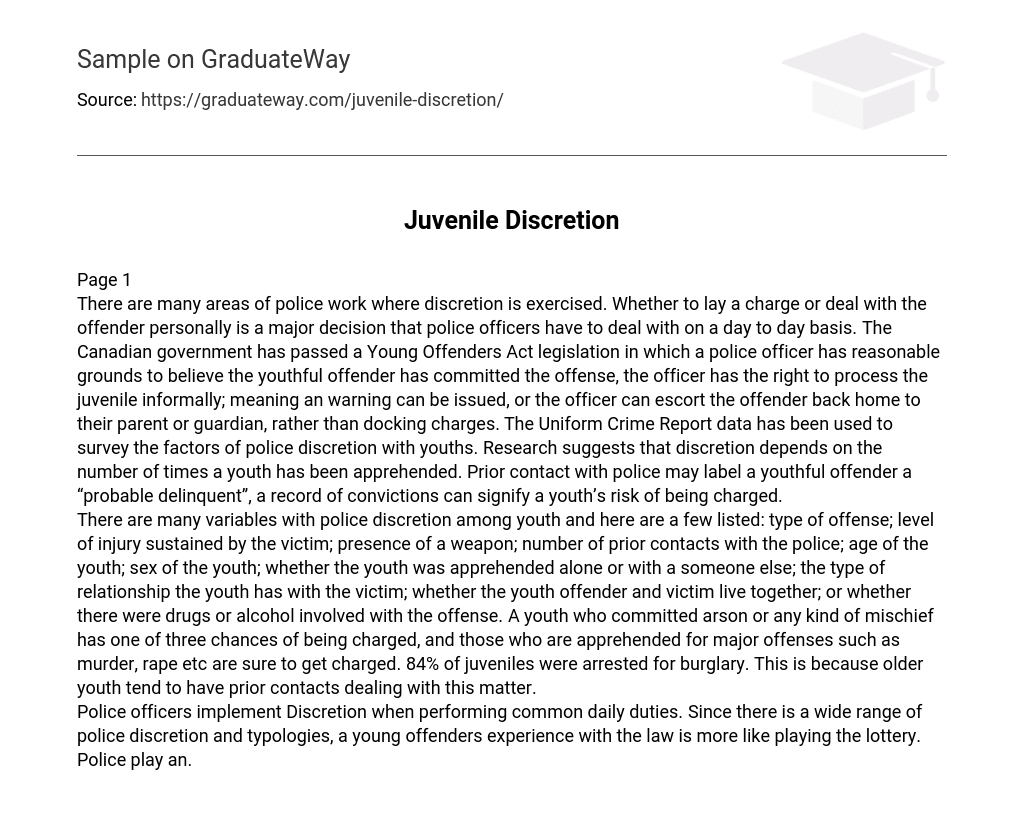Page 1
There are many areas of police work where discretion is exercised. Whether to lay a charge or deal with the offender personally is a major decision that police officers have to deal with on a day to day basis. The Canadian government has passed a Young Offenders Act legislation in which a police officer has reasonable grounds to believe the youthful offender has committed the offense, the officer has the right to process the juvenile informally; meaning an warning can be issued, or the officer can escort the offender back home to their parent or guardian, rather than docking charges.
The Uniform Crime Report data has been used to survey the factors of police discretion with youths. Research suggests that discretion depends on the number of times a youth has been apprehended. Prior contact with police may label a youthful offender a “probable delinquent”, a record of convictions can signify a youth’s risk of being charged.
There are many variables with police discretion among youth and here are a few listed: type of offense; level of injury sustained by the victim; presence of a weapon; number of prior contacts with the police; age of the youth; sex of the youth; whether the youth was apprehended alone or with a someone else; the type of relationship the youth has with the victim; whether the youth offender and victim live together; or whether there were drugs or alcohol involved with the offense.
A youth who committed arson or any kind of mischief has one of three chances of being charged, and those who are apprehended for major offenses such as murder, rape etc are sure to get charged. 84% of juveniles were arrested for burglary. This is because older youth tend to have prior contacts dealing with this matter.
Police officers implement Discretion when performing common daily duties. Since there is a wide range of police discretion and typologies, a young offenders experience with the law is more like playing the lottery. Police play an.





